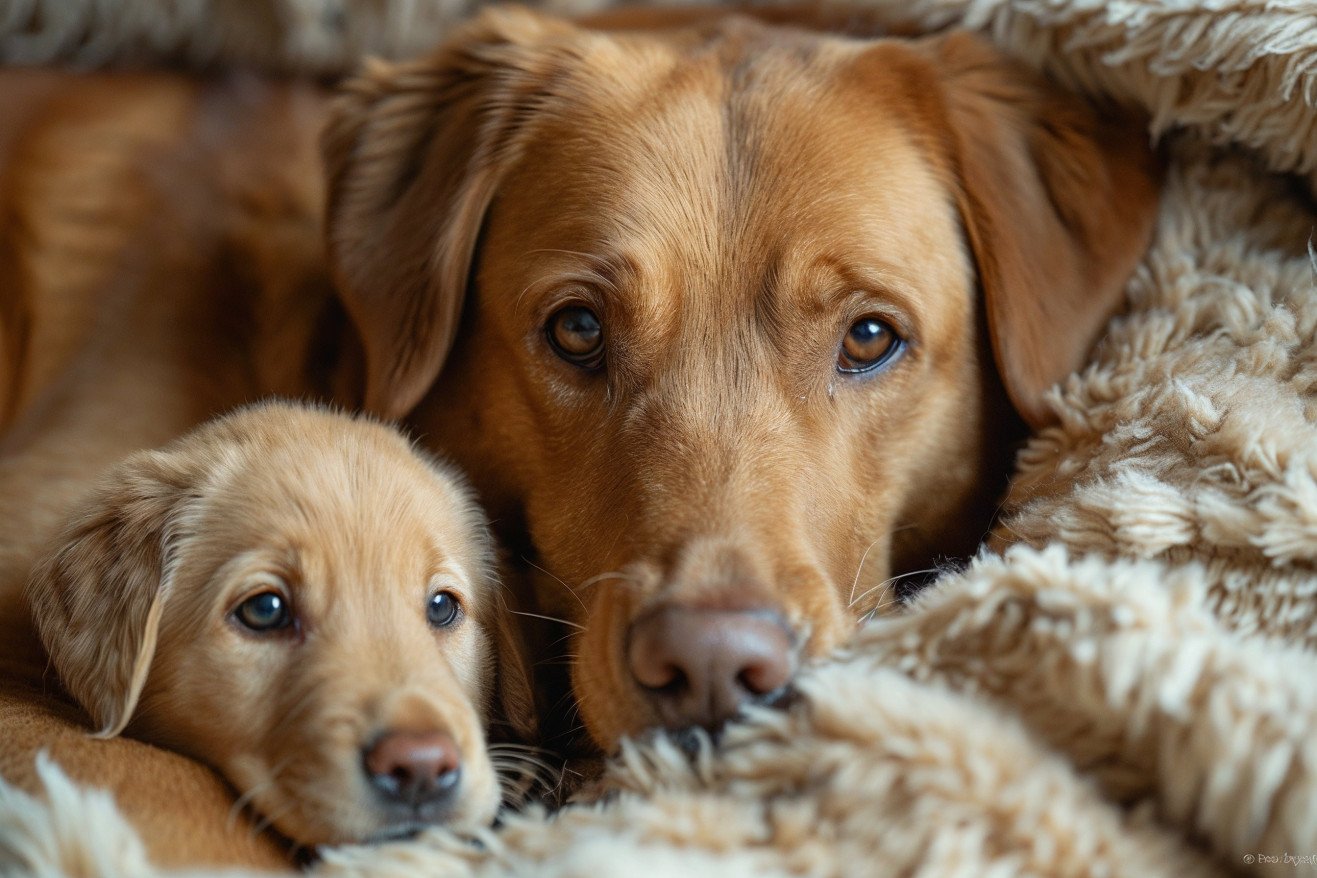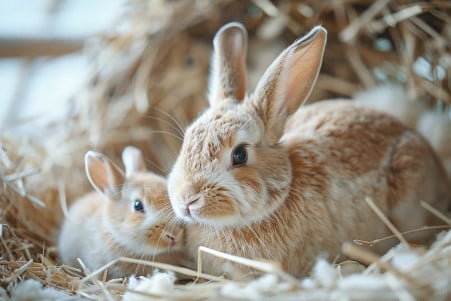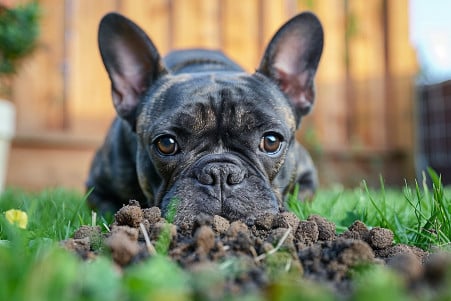Why Do Dogs Eat Their Puppies? Understanding Canine Behavior
30 March 2024 • Updated 29 March 2024

As shocking as it is to witness, the behavior of dogs eating their puppies can be attributed to a number of biological, psychological, and environmental causes. Dogs may eat their puppies if they are stillborn or if they are born with a condition that is perceived as untreatable or unhealthy, to protect the other puppies in the litter, to recycle nutrients from decomposing tissue, in response to extreme stress or disruption, or as a vestige of an evolutionary adaptation to ensure survival when resources were limited.
This article will draw on the work of animal behaviorists, veterinarians, and dog psychologists to explain the many factors that may contribute to this behavior. By learning about the potential reasons for it, we can help to address the underlying causes and move toward protecting the puppies and their mothers. Although it can be hard to read, this investigation helps us better understand the instincts and needs of our dogs, which in turn can help us develop a more caring and empathetic relationship with them.
Why do dogs eat their puppies?
How Common Is Puppy Cannibalism?
While the idea of puppies being eaten by their mothers is certainly shocking, it is not unheard of in domestic dogs, especially in certain breeds and situations. According to Top Dog Tips, it's hard to know exactly how often this happens because many cases are likely to go unreported and even unnoticed by dog owners. However, it's estimated that between 1% and 10% of litters are affected by puppy cannibalism, with the rate varying based on breed and other factors.
Breeds like the Kangal dog breed in the study that have been bred for hunting and guarding purposes may be more likely to exhibit this behavior because of genetic traits that have been passed down through generations of selective breeding. According to Pethelpful.com, dogs that have been bred for these purposes may be more likely to kill and eat weaker and sicker puppies, a behavior that has been passed down from their ancestors.
That said, responsible breeders and pet owners can take steps to prevent puppy cannibalism in their dogs. By understanding the potential causes of this behavior, we can better understand how to create an environment that is safe and stress-free for both mother dogs and their litters, which will ultimately protect the health and safety of these vulnerable puppies. This will set the stage for a better understanding of the biological and evolutionary factors that may have led to this behavior.
Biological and Evolutionary Factors That May Cause Puppy Cannibalism
Puppy cannibalism may have evolved as a way to help ensure the survival of the fittest, enabling dogs to eliminate weaker offspring and conserve resources for future reproduction. A study in The American Naturalist suggests that eating dead tissue can provide the mother with energy and nutrients, which may increase the likelihood of her successfully raising future litters. The researchers found that filial cannibalism is most likely to evolve when population-level resource competition and density-dependent offspring survival are the most extreme.
Moreover, a study in PMC discovered that selective cannibalism of slower-developing or lower-quality puppies can be favored over a broader range of conditions compared to no parental care. Although this may be hard to understand, the researchers found that in some cases, puppy cannibalism may have been evolutionarily beneficial in environments where resources were limited. This helps to set the stage for the potential psychological and emotional impacts on surviving puppies.
Psychological and Emotional Effects on Surviving Puppies
For the puppies that survive, the experience of watching their mother eat their siblings can be traumatic and may have long-lasting emotional and psychological effects. As the authors of the review of maternal behavior in dogs note, disruptions to the normal care and bonding between a mother and her puppies during the sensitive period of early development can impact a puppy's development and personality throughout their life.
For example, puppies that were exposed to higher levels of stress hormones from their mother while in the womb may be more likely to have a more exaggerated and prolonged stress response even when they are in a loving home. As explained by the Whole Dog Journal, this "programming" can lead to an anxious or fearful dog because the puppy's stress response system is set up to be hyper-reactive to stressors.
As a result, surviving puppies may experience anxiety, fear, or aggression in the future as a result of the psychological effects of maternal cannibalism. That said, a study published in Scientific Reports showed that with proper socialization, training, and a supportive environment, these potential negative effects can be reduced. Still, more research is needed to determine the long-term impact on puppies that experience maternal cannibalism.
How to Avoid Puppy Cannibalism
To avoid puppy cannibalism, it is important to make sure that the mother and her puppies are in a safe, warm, and low-stress environment, according to Dr. Emmanuel Fontaine. In addition, the mother should be well-fed and supplemented, especially in the last trimester and during nursing, according to VCA Animal Hospitals.
It is also important to keep an eye on the mother and make sure that if she shows any signs of stress, rejection, or aggression toward her puppies, she is helped immediately, according to Best Friends Animal Society. In some cases, it may be necessary to separate rejected or injured puppies from the mother and care for them separately, according to Faithful Friends Vet Clinic.
Finally, it is important to make sure that if you have an inexperienced or high-risk mother, you are prepared to get veterinary help to make sure that any potential problems are caught and treated early, according to Top for Pets. By making sure that the mother and her puppies are well-cared for, breeders and pet owners can make sure that puppy cannibalism is avoided.
Conclusion: What We Know and How to Prevent Puppy Cannibalism
Although it is upsetting, puppy cannibalism in dogs can be understood as a result of a number of biological, psychological, and environmental factors. Understanding the potential evolutionary benefits and drives of the behavior can help to reduce stigma and increase understanding. By following best practices for breeding, whelping, and puppy care, the likelihood of puppy cannibalism can be greatly reduced.
However, it is important to make sure that the other issues that can lead to puppy cannibalism, such as stress, nutritional deficits, and lack of maternal experience, are also addressed. More research is necessary to understand the long-term effects on puppies who survive puppy cannibalism and to find more effective ways to intervene.


